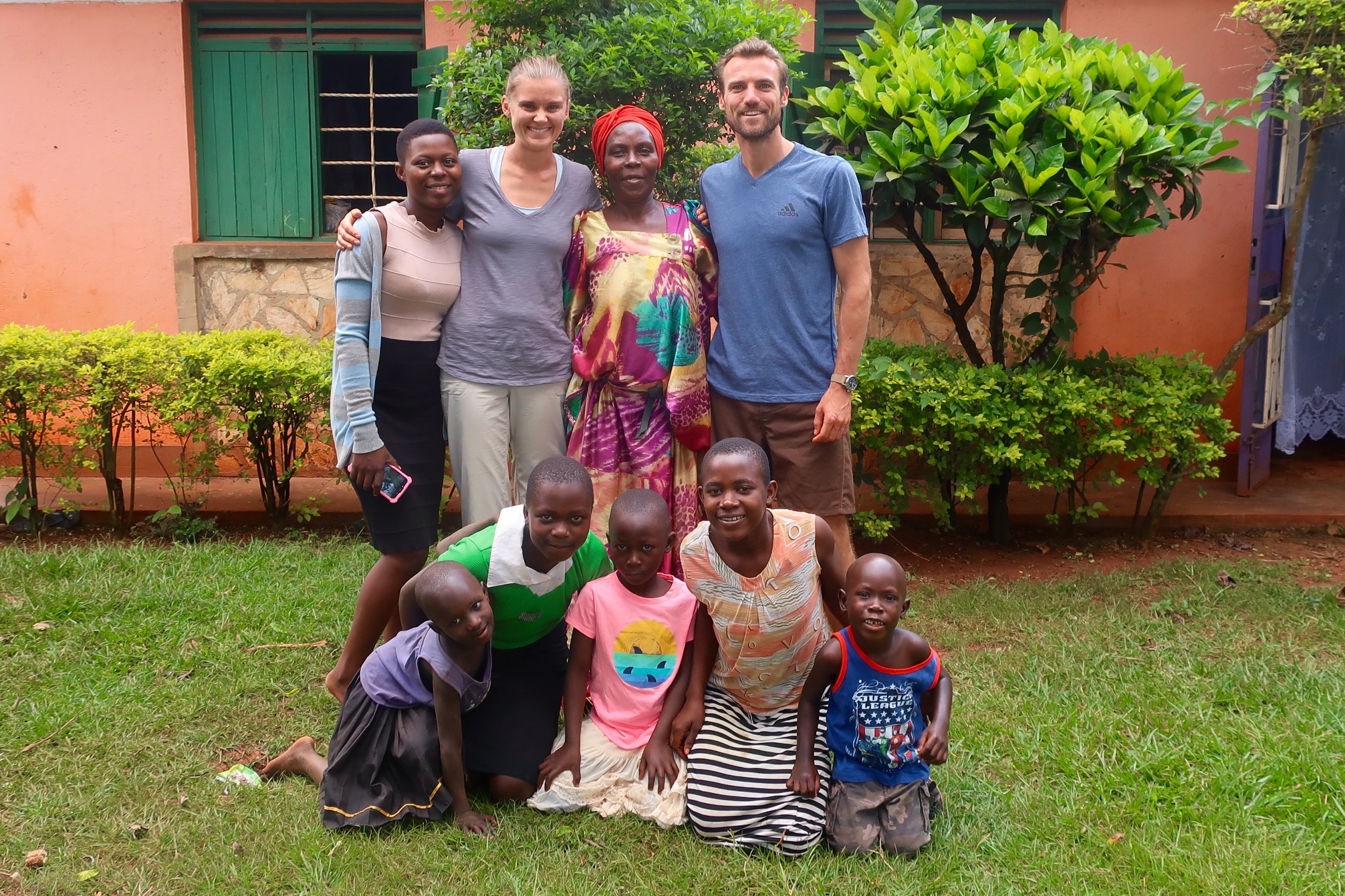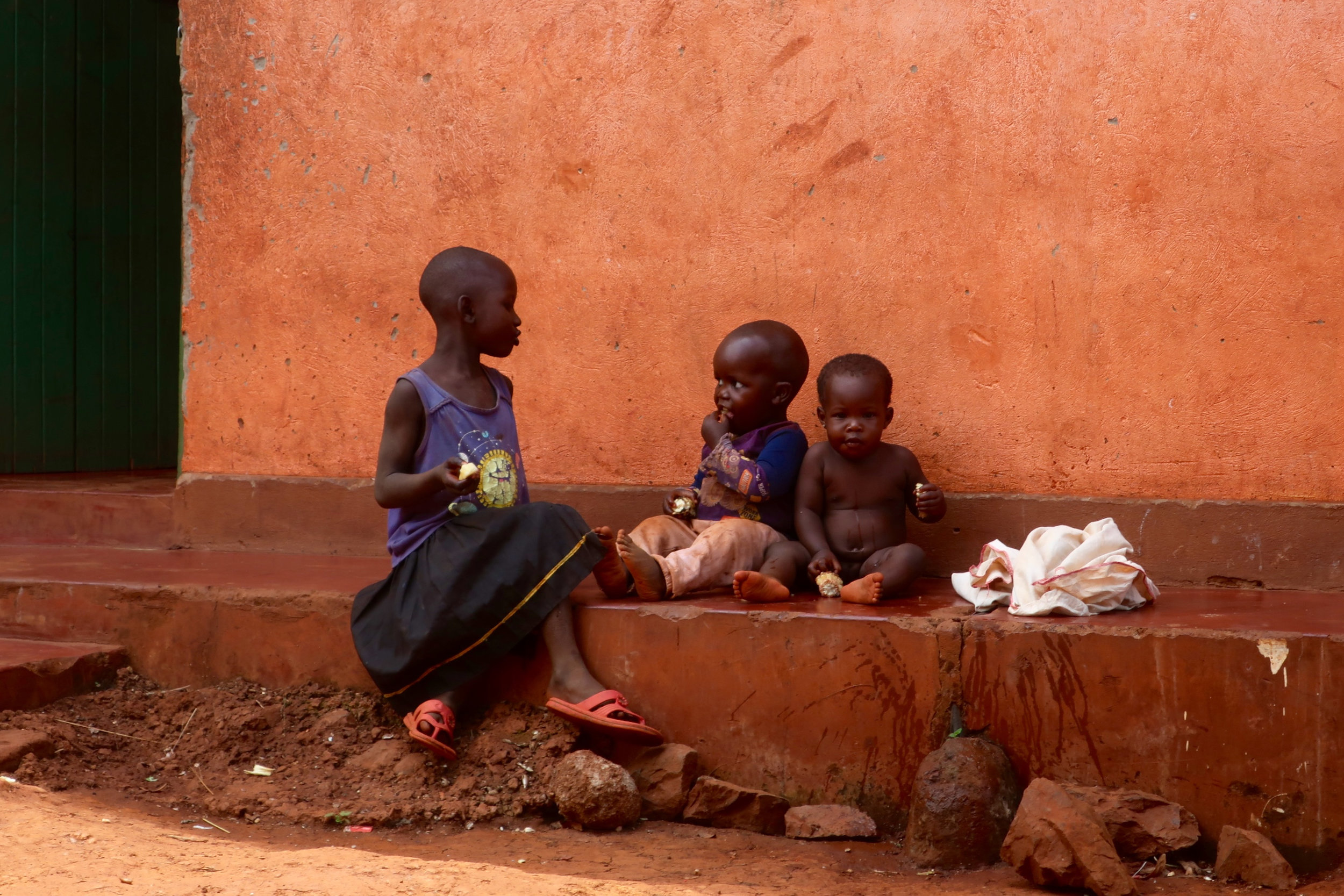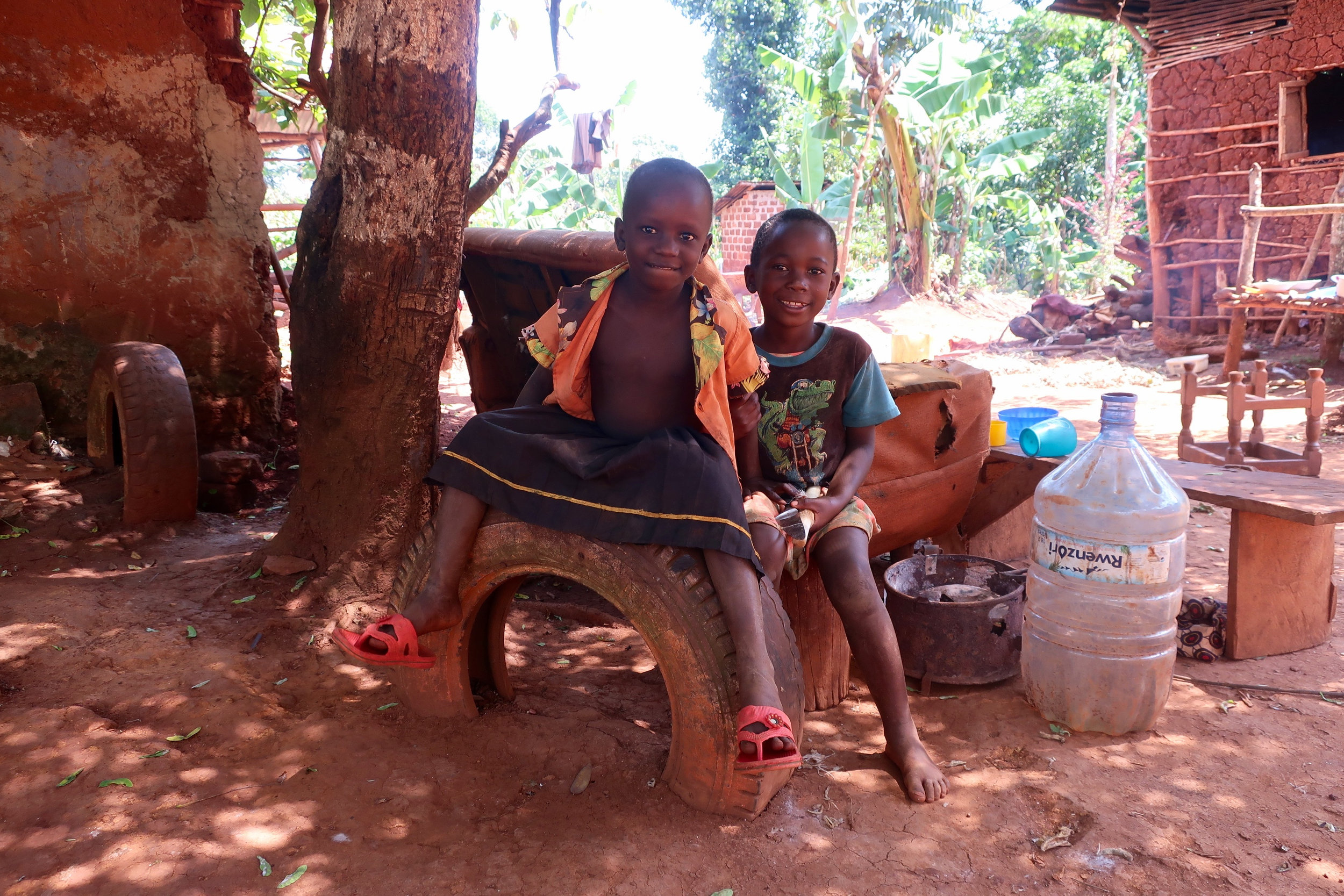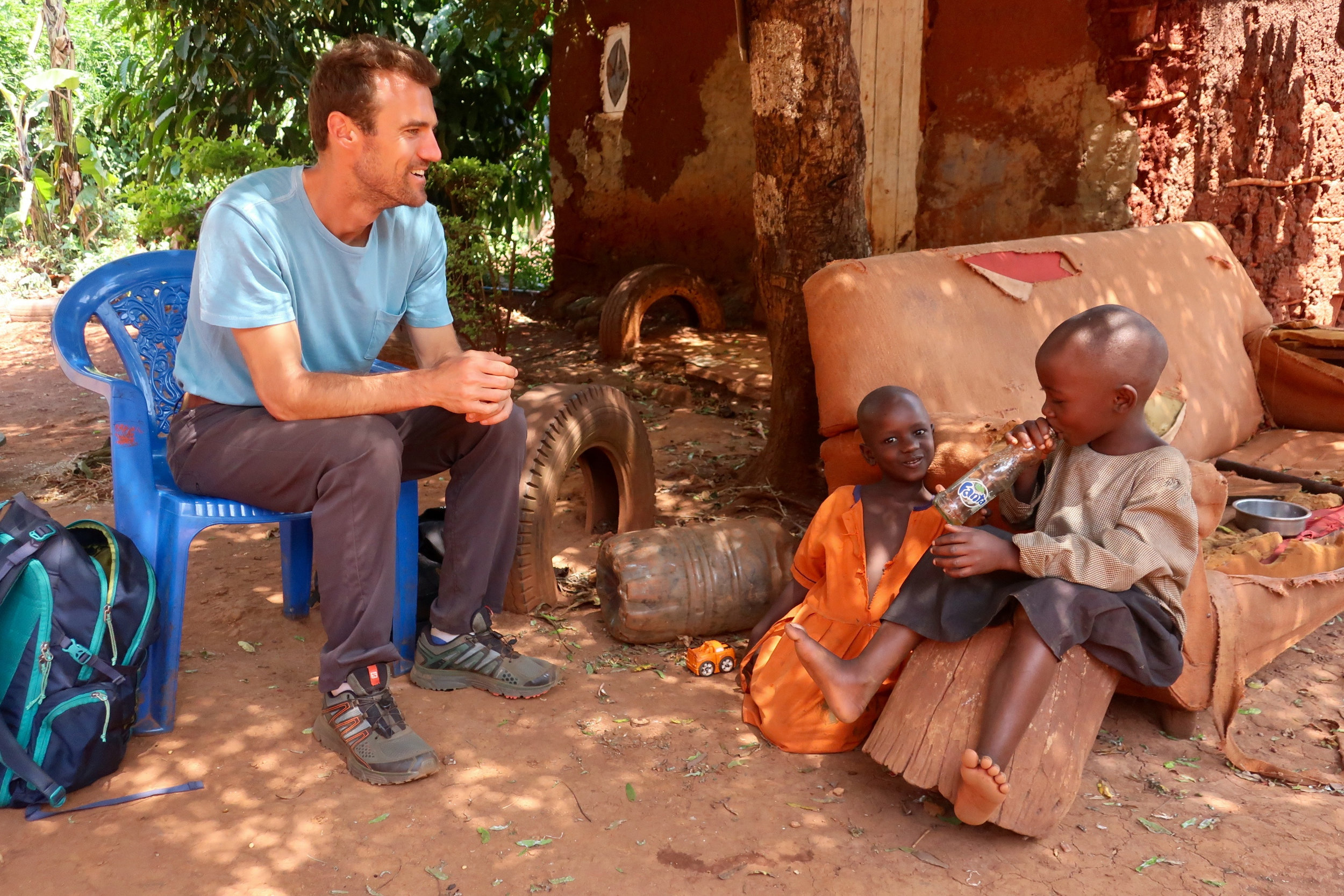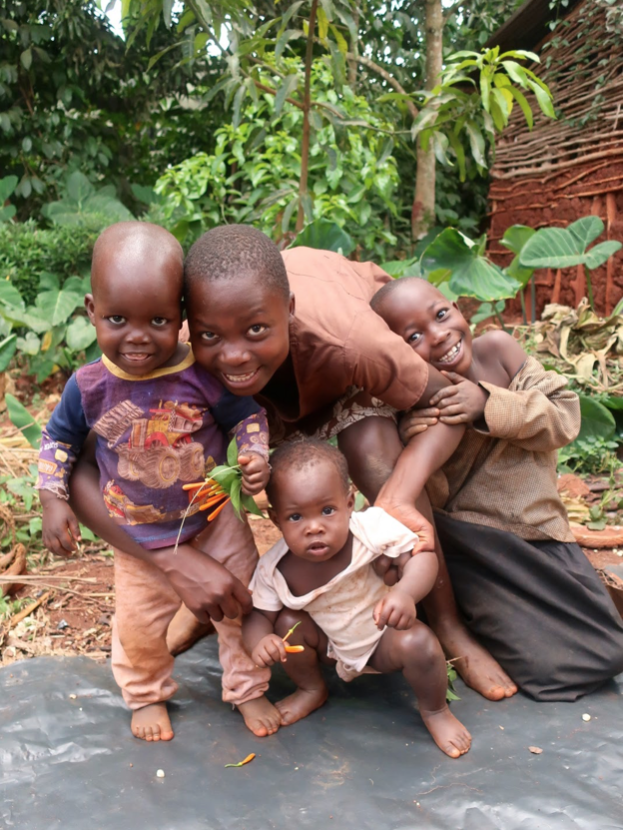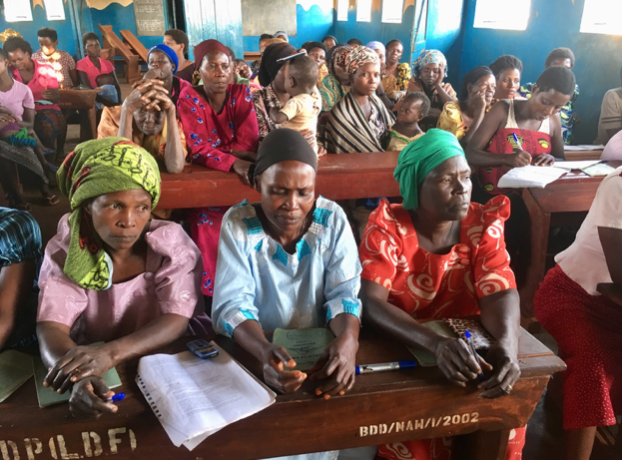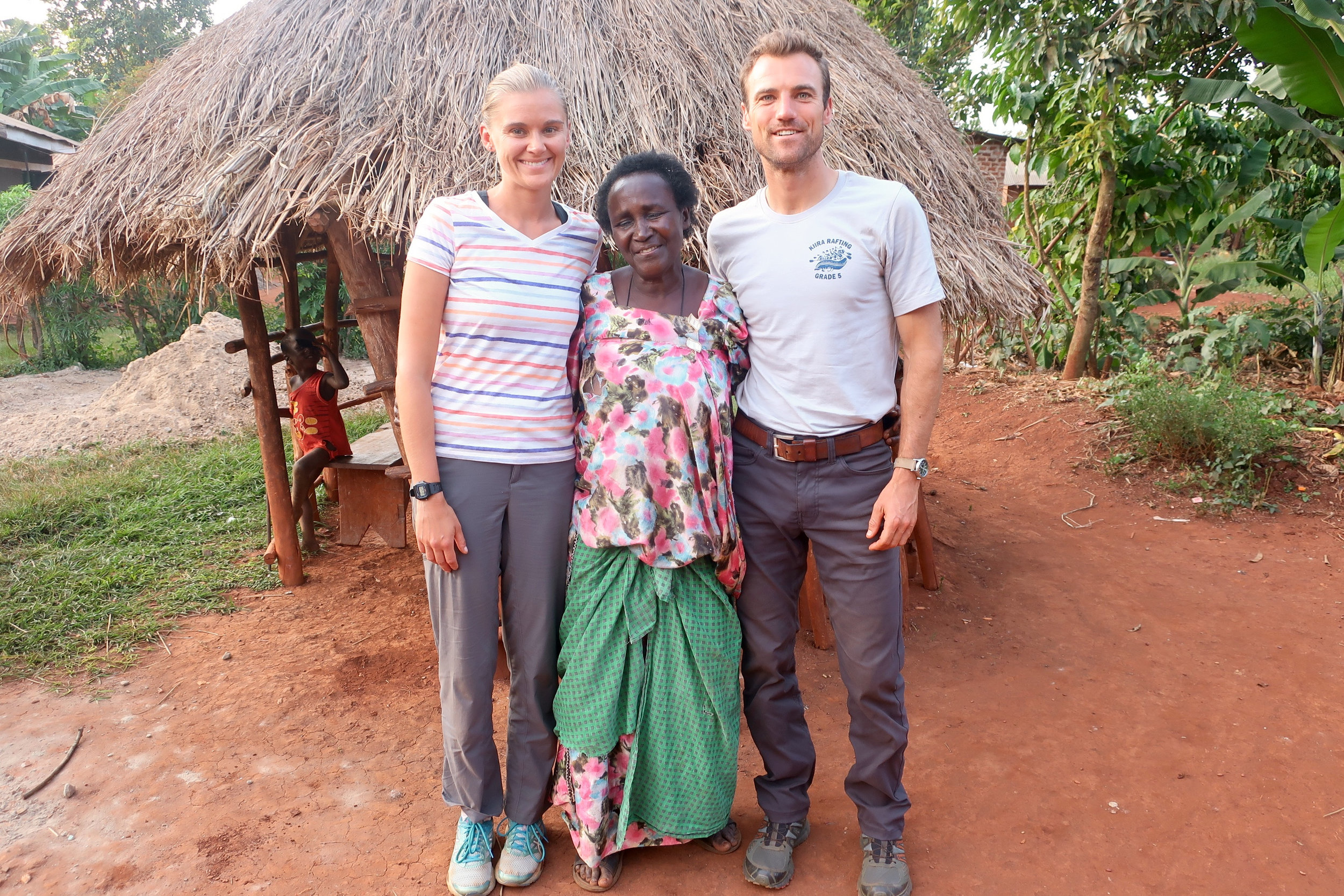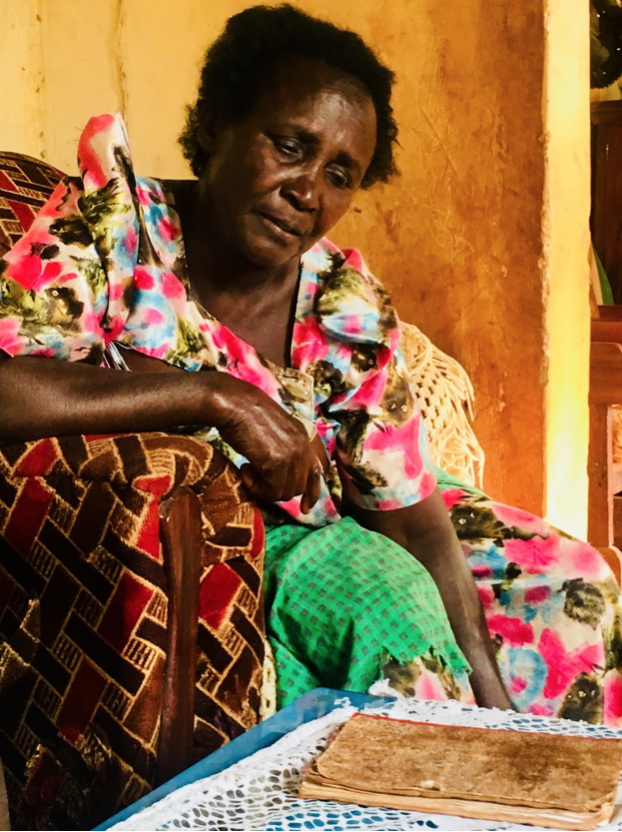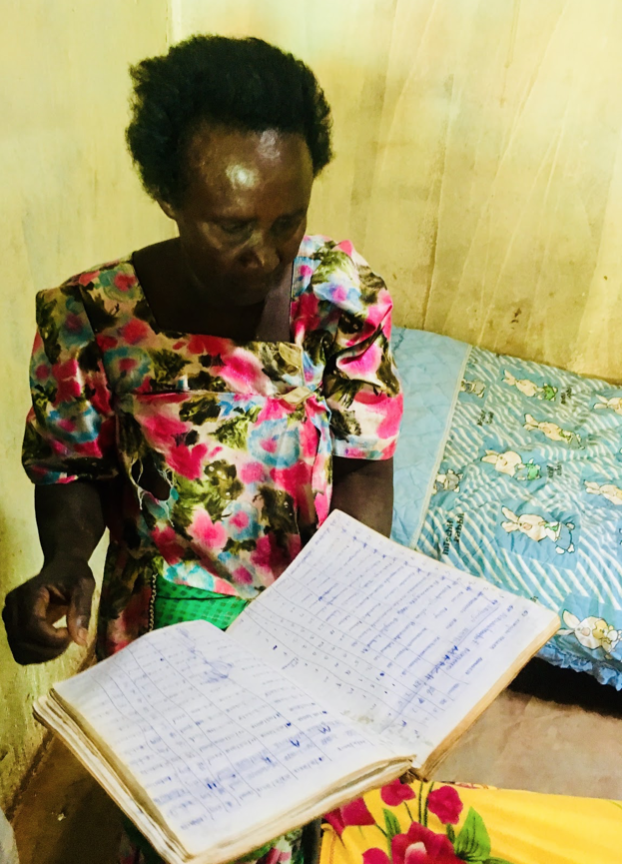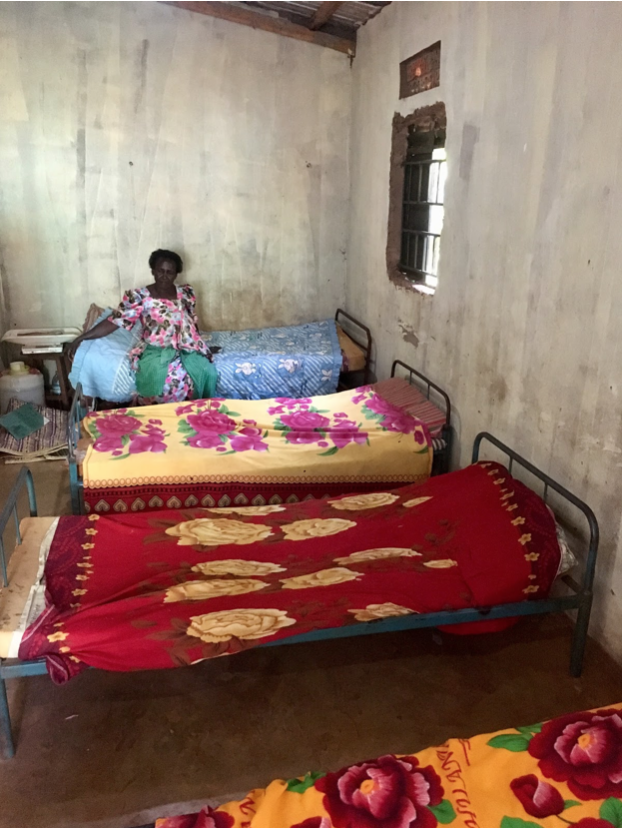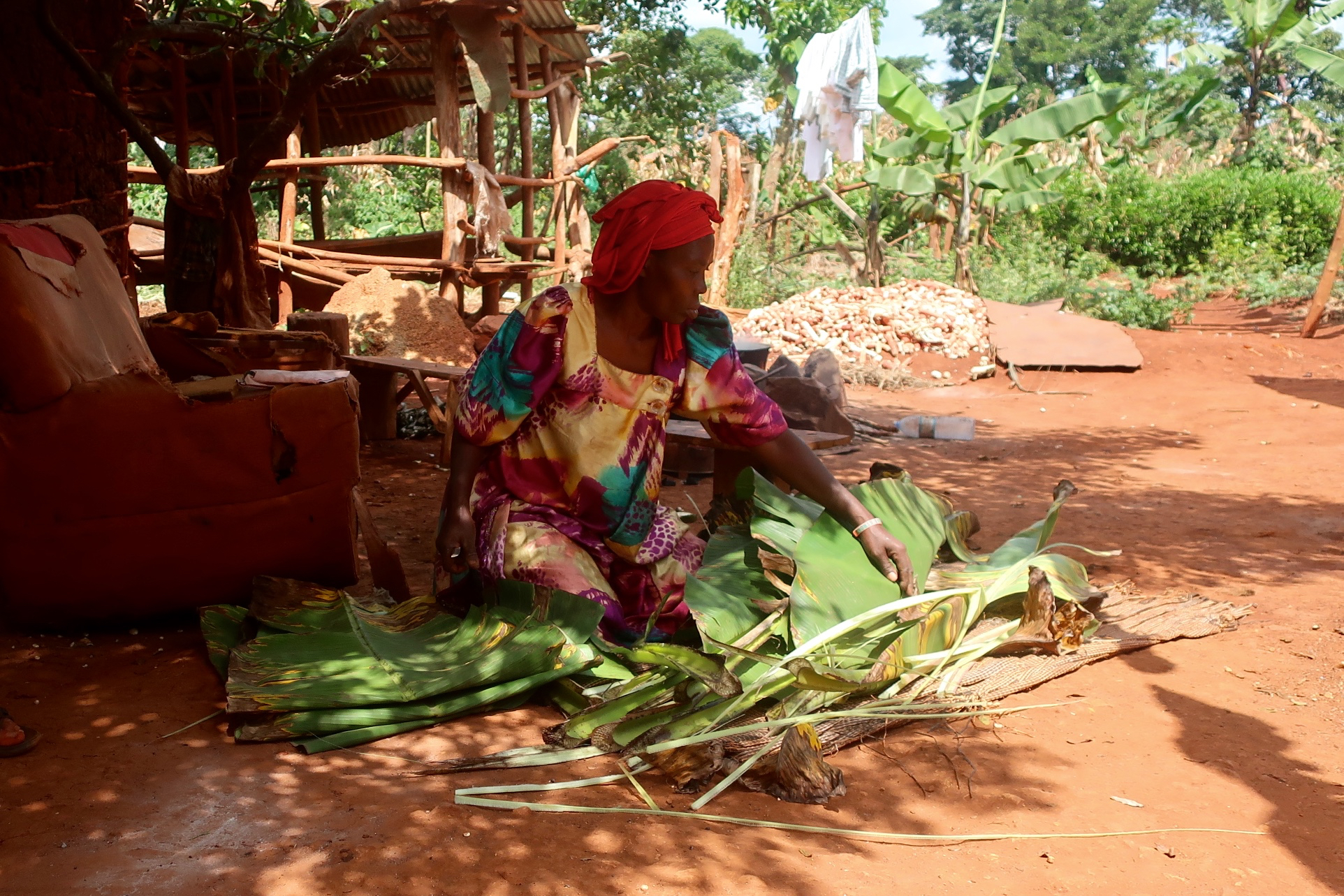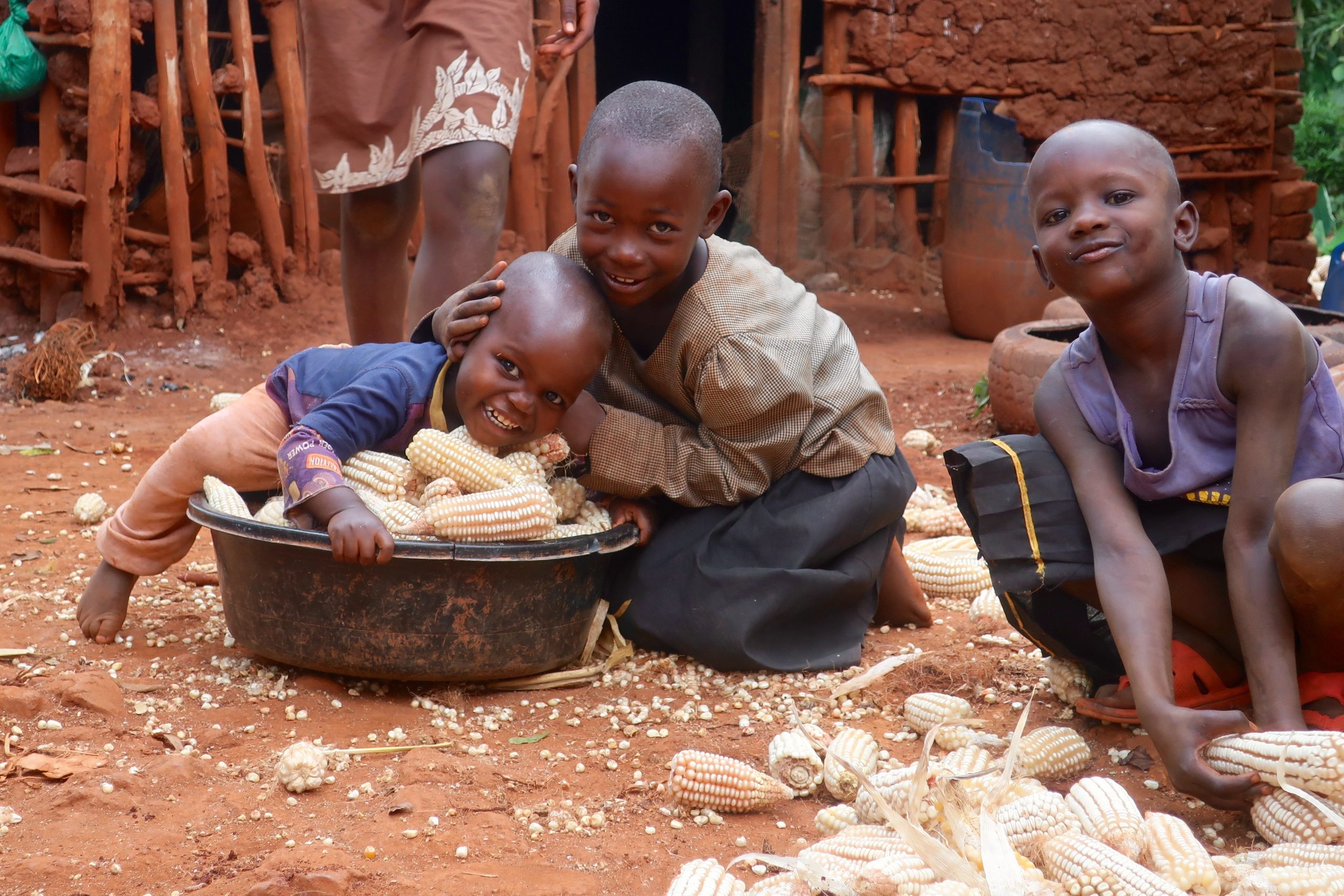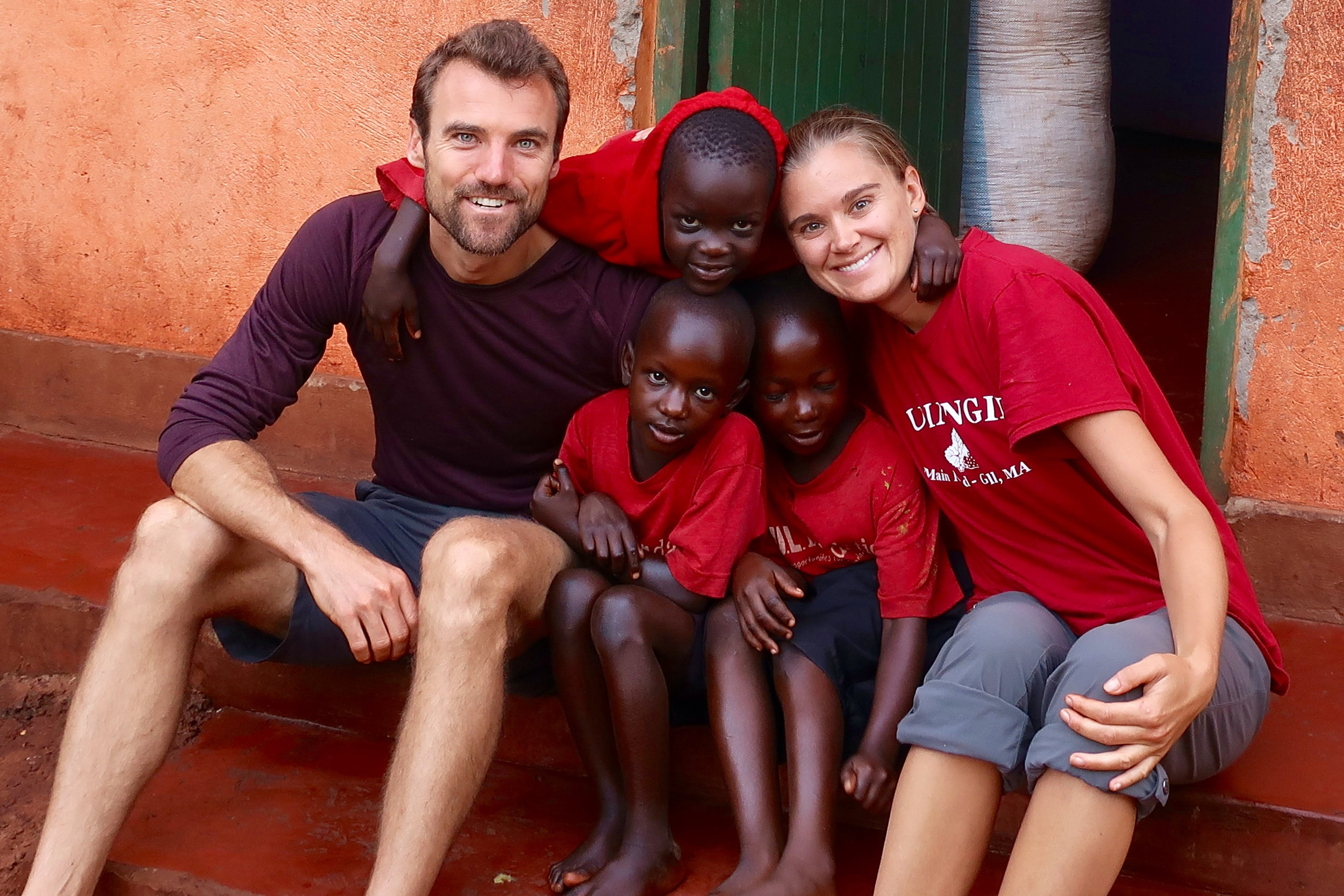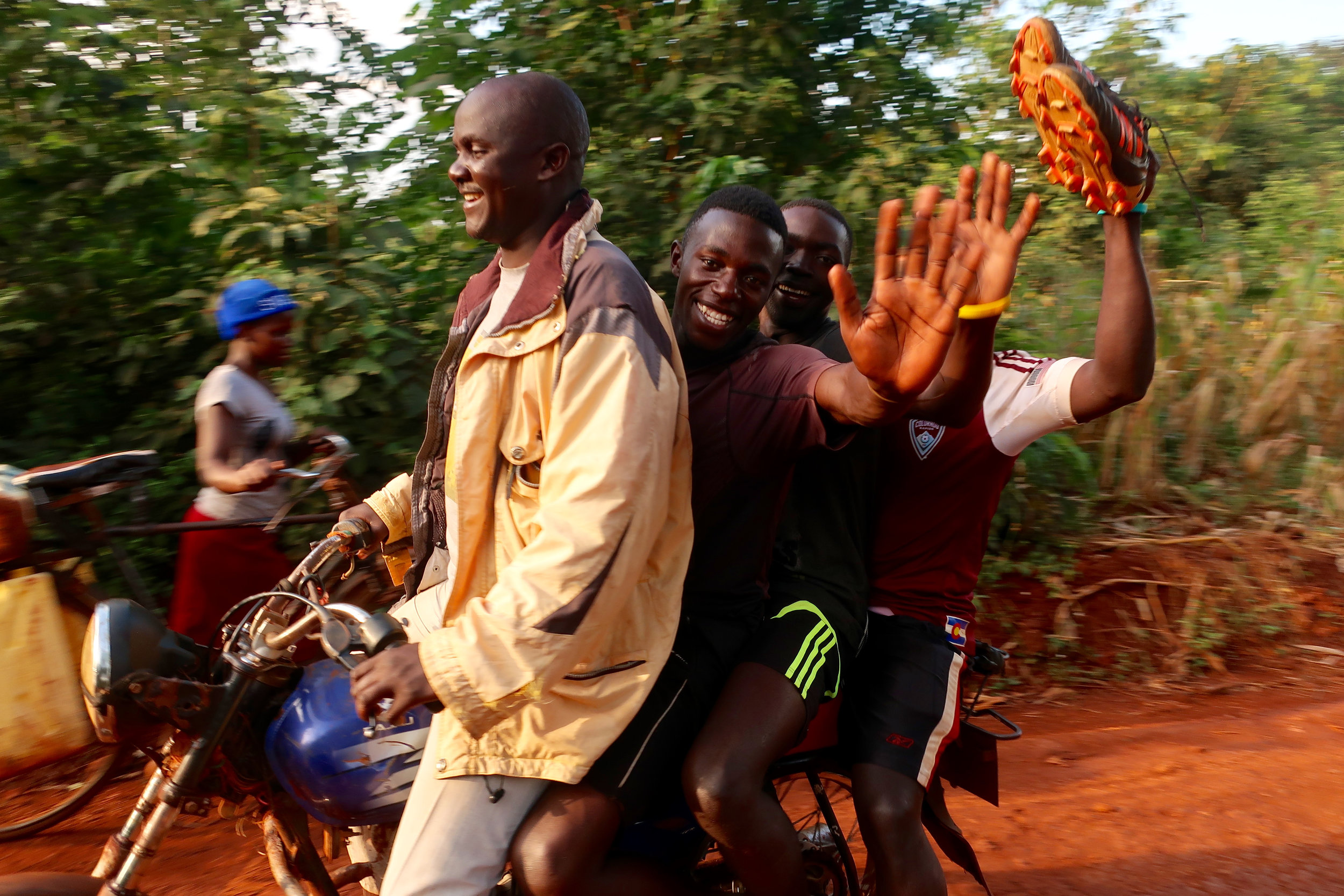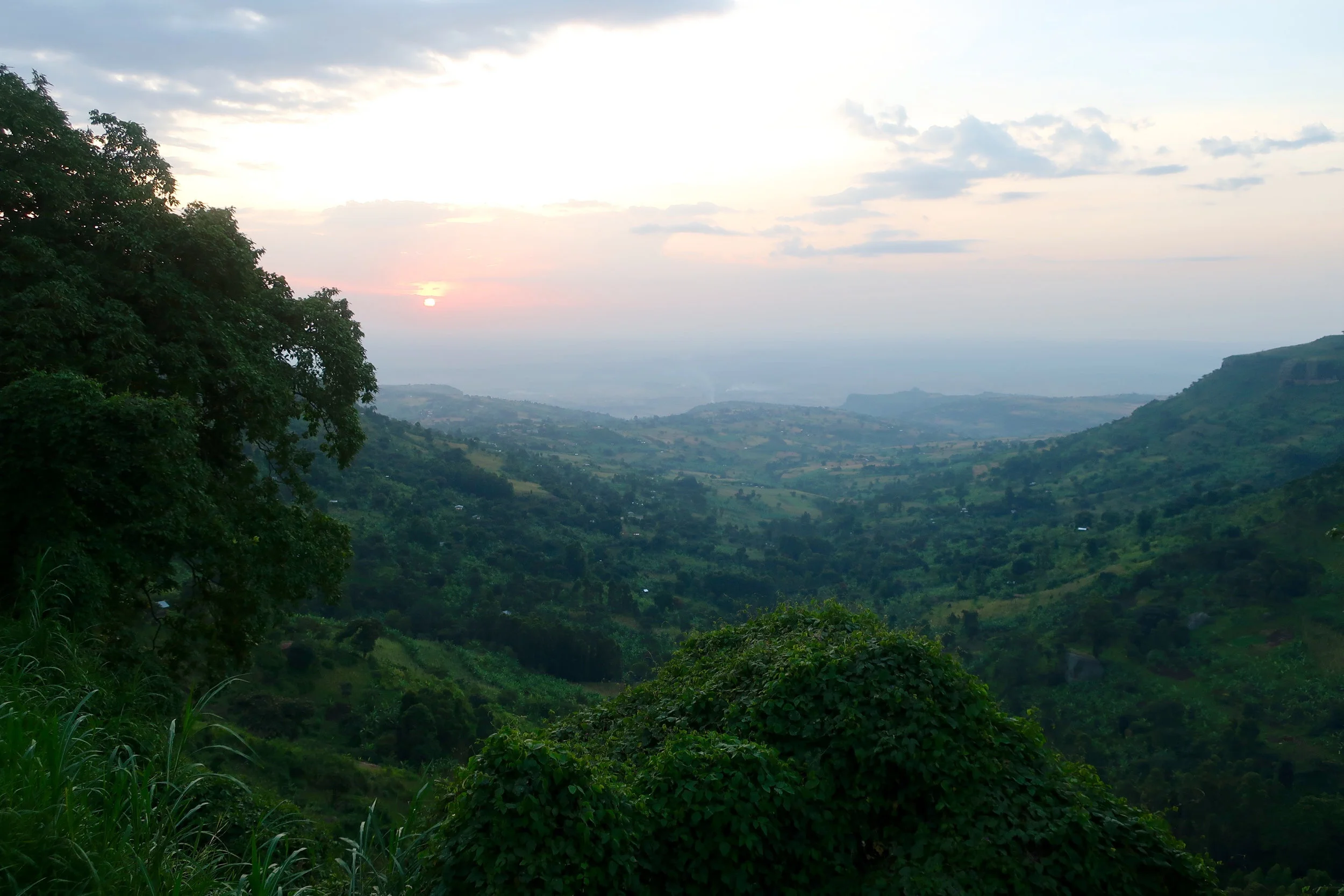Guest Blog by Taylor Washburn and Emily Chandler, Global Ambassadors for Rockflower
It was mid-July when we landed at Entebbe International Airport. We quickly found our new friend Muganda, S.O.U.L. Foundation’s volunteer coordinator, outside the little airport and headed right into afternoon rush-hour traffic in Kampala on our way to Jinja Bujagali. Despite some jet lag, the drive was a good opportunity for us to get to know Muganda, what he does with S.O.U.L. Foundation, and what the organization has meant to him since its founding. He was born and raised in a polygamous family with three wives, and he and many of his siblings have benefited from S.O.U.L. Once a S.O.U.L. sponsored student, Muganda attended university and now is a coordinator for the food security program, working on agriculture and aquaculture.
S.O.U.L. Foundation was co-founded by Brooke Stern Okoth and Ken Stern, Brooke’s father, who visited Bujagali Falls on a backpacking trip in 2009. Struck by the lack of basic necessities and amazed by the people’s spirits and enthusiasm, even in the face of extreme poverty, Brooke returned shortly thereafter to start S.O.U.L. Foundation. S.O.U.L. has grown a lot since then! With programs in education, women’s empowerment, maternal health and school sponsorship, we were excited to see their work in action. What we didn’t fully appreciate, though, was just how much we would learn and value our opportunity to stay in the home of a family that has been deeply connected to S.O.U.L Foundation since its inception.
We arrived after dark in Bujagali Falls at the home of Mama Ali, one of the wives in Muganda’s family. She welcomed us with open arms and immediately started teaching us Lusoga, the local language. Most of Mama Ali’s six children have been sponsored by S.O.U.L. to further their education and are now adults. Her house is still full, though, of various children in her extended family. The young children come to live with her so they have better access to education and opportunities, in large part thanks to S.O.U.L. We really enjoyed getting to know her, her husband and children, and the extended family of children living with her. Her home was rarely quiet, with friends and family constantly passing through. We would ask Muganda how everyone was related and he would just say “it is the family forest”. The village is a tight-knit community, where the lines between family and friends seem oftentimes blurred.
Our day to day experiences in Mama Ali’s home illustrated the extent to which this community is benefits from S.O.U.L.’s presence. We really enjoyed getting to know and spend time with Naima and Salima, two young children in Mama Ali’s extended family who live with her and are students at the pre-primary school S.O.U.L. Foundation operates. At age six, both girls are working members of Mama Ali’s household; they sweep the compound, fetch water, work in the garden and help with cooking, cleaning, laundry and any other chores that need to be done. Contrasting their lives to those of our young nieces, nephews and cousins at home was a constant mental exercise for us; toys and playtime are scarce in these girls’ lives, but they are happy, healthy and full of joy. The self-sufficiency and resilience of these kids is impressive; we rarely saw them cry or complain and were impressed by their ability to find fun in their work. These girls illustrated for us how, nearly from birth, women and girls play a critical role in supporting their families and communities.
During our days at S.O.U.L we would sometimes see Naima and Salima at pre-primary school. The genuine joy on their faces, and those of their classmates was palpable. These students are eager to learn and grateful to be able to go to school. Without S.O.U.L. and Mama Ali, these girls might not be in school, and even though they attend S.O.U.L. pre-primary, there is no guarantee they will become S.O.U.L. sponsored students or that their families will be able to pay their school fees in order for them to continue their education.
We saw in Mama Ali’s adult children, Zahara, Ali and Arafat, how access to education through S.O.U.L. has changed the trajectories of their lives. It has enabled them to pursue their dreams and support their family. Ali is a landscape architect, farmer and works with S.O.U.L.’s Agriculture Learning Center program in Bujagali. Touring his gardens and learning from him was a highlight of our time in Bujagali. Arafat supports himself as an artist in Entebbe. Zahara is studying to be a nurse and midwife. Thanks to S.O.U.L., these young adults are thriving, independent, empowered people who share S.O.U.L.’s values and are determined to improve the opportunities available to Ugandans like themselves.
As Mama Ali and the children dried and processed corn to take to the maize mill, we felt the tangible impact having a maize mill in Bujagali has had on this community. S.O.U.L. operates the maize mill, employing women in the community who otherwise have very limited economic opportunities. During our week in Bujagali Falls, we visited the mill and were able to see it and its staff in action. Before there was a local maize mill, Mama Ali and others would still dry their corn, but they would have to take it to another village to be milled. Harvesting several hundred kilograms of corn, as many families do, means all that corn must be transported by foot or by boda boda (motorcycle) to a village with a mill, usually some distance (5 or more kilometers) away. The price in time and resources spent bringing the corn to and from a mill is very costly for these rural Ugandans, so the mill in Bujagali has been a tremendous benefit to the community. Community members may pay to have their maize milled either in shillings or with a percentage of the maize flour their crop produces. Women who work at the mill are paid for their hours and served a meal while they are working. In this way, S.O.U.L.’s maize mill is directly in line with two of Rockflower’s Five Keys: economic empowerment and access to food and water.
Another impactful series of experiences we had while staying with S.O.U.L. were in conjunction with their maternal health program. As our Rockflower campaign was an effort to support this program, we were excited to learn more about it. Particularly for Taylor, as one of nine children, the importance of this program resonated with us. Our very first day at S.O.U.L., we worked with Bayo Jinnous, an ultrasound technician who travels a great distance (about 5 hours each way!) every Friday to come to S.O.U.L. to conduct ultrasounds for women in the community. We observed his work and spoke with him at length about maternal health and public health in general in Uganda. It was a great scene-setting experience for us, as women of all ages and education levels came for scans. Many had only completed primary school and many others only had a year or two of secondary school education. The cost of education - even the fees associated with the public schools - is prohibitive for many families in Uganda resulting in many children, especially girls, not finishing school. As part of the scan, S.O.U.L. asks the women whether they are attending antenatal classes at the local hospitals and gives them antenatal vitamins through a partnership with Vitamin Angels.
A few days later, we traveled with Muganda to a nearby village to attend a maternal health education class taught by S.O.U.L. antenatal education instructor, nurse and midwife, Sophie Mutesi. We anticipated the class would be well-attended, but we were somewhat blown away as women kept coming, and coming and coming during the two hour class. The room was packed with women of all ages: some very young, some quite old, some with infants and all eager to learn as much as they could from Sophie. The course was taught in Lusoga, and even though we couldn’t understand the lessons and questions, the joy, camaraderie, community and support that come from these classes was apparent. This work empowers communities with knowledge, skills and confidence and makes Ugandan women, children and families safer and stronger. Also, when women complete the maternal health education classes with S.O.U.L., they are able to receive a “Mama Kit” which contains important supplies for a healthy delivery, such as gloves (to prevent transmission of infections and HIV), razor blades (to cut umbilical cords), soap, gauze to clean a newborn’s eyes, sanitary towels for the mother, a polyethylene sheet on which to give birth and a suction bulb to clean a newborn’s airway. That S.O.U.L. can offer the Mama Kits is a real motivator for women to take these classes, as they fully recognize the importance of these supplies in a healthy and safe birth.
Our last visit specific to the maternal health program was with Muganda to meet Clementina, a local traditional birthing attendant. She studied nursing and midwifery in school and now, likely in her 70s, is renowned and beloved in the region for her work. She is inspirational, warm and an asset to Ugandan women and families. We visited her at her home where she has a small facility. S.O.U.L. helped her install solar lights and a water collection system for showers several years ago. Prior to that she had neither. Her small building has a birthing room with one bed and a recovery room with four beds. She welcomed us for tea and showed us her record books; she has recorded every delivery in her career. She seemed to average 60-100 births per month, which suggests she has delivered somewhere between 30,000 and 40,00 babies in her lifetime. She does not charge for her services, though women pay what they can afford, and she doesn’t take time off. At this point people will travel great distances to deliver babies with Clementina. She does not use much traditional medicine and Muganda shared with us that she considers the forest her lab, where she goes to collect various medicinal herbs.
While she has been instrumental and critical in the greater community, traditional birthing attendants can be controversial. Without access to hospital facilities or reliable transport to a hospital, when a mother or baby requires additional medical care in childbirth, it can be difficult or impossible to get to a hospital. S.O.U.L. has another initiative to provide emergency transport for pregnant mothers to help address this issue and their support of Clementina has served to improve the safety of her work and facility. S.O.U.L. is planning to build a maternal health facility in the village, which will also help to address some of the safety and health issues around maternal health.
While we were at S.O.U.L. we really enjoyed getting to know Hawa Nantege, one of the tailoring instructors. S.O.U.L. runs tailoring classes for members of the community (mostly women, but men do take the courses, too). Her students were working on their exams during our week there, completing a different piece of clothing each day during the week. We enjoyed watching them block out and sew shirts, skirts, childrens shorts and other items. Hawa also quickly saw in us people she could put to work making sanitary pads, and we were eager to help. Tailoring students and S.O.U.L. staff work hard to make “S.O.U.L. sister totes”, bags with a set of reusable menstrual pads for female S.O.U.L.-sponsored students. Without access to supplies or medication to manage their menstrual cycles, girls are often forced to miss or leave school because of their periods. Giving girls the supplies and confidence to stay in school is an important part of S.O.U.L.’s sponsorship program and we really enjoyed being able to do a small bit to support this important project. Students periodically need new totes as the pads do not last forever, so there is a constant demand to make more pads and any idle hands can be found tracing and cutting the different materials for the tailoring students and instructors to sew.
We also got to visit S.O.U.L.’s new fish farm in the Nile River with Muganda. Muganda has studied aquaculture and started S.O.U.L.’s program. The first batch of tilapia were nearing a sufficient size to begin selling them. S.O.U.L. employs women in the community who come to feed the fish daily (~30-40 kg of feed!) as well as two other employees who help with security and maintenance of the four cages. A new venture for S.O.U.L., it was exciting to see a project with so much potential in its first iteration. We also visited the agriculture learning center in the village with both Muganda and his brother, Ali. With all sorts of crops, including kale and other greens, cabbage, squash, corn and bananas, the demonstration center shows community members both how to grow different crops and proves that some crops (thought to not grow in the region) can actually grow well. Both of these projects, as well as others the S.O.U.L. operates in another village nearby, serve to diversify the sources of food produced within and available to the community, as well as create a source of revenue for S.O.U.L.
We learned so much and really loved our time in Bujagali with S.O.U.L. and Mama Ali’s family. Learning from and living with them really helped us contextualize and appreciate the challenges rural Ugandan communities face on a daily basis. While the work S.O.U.L. and Rockflower do already resonated with us, living and experiencing the need for community-based organizations like S.O.U.L. cemented for us the importance of empowering communities through education and economic opportunity. After a full and terrific stay in Bujagali, we were sad to leave but excited to get on the road and meet the other seven Rockflower partners in Uganda.


